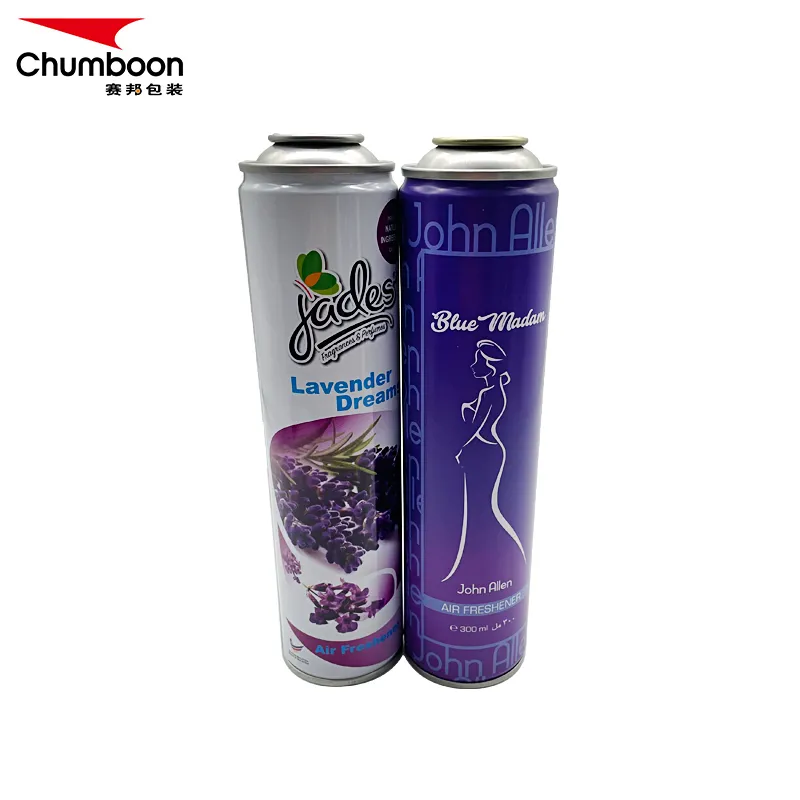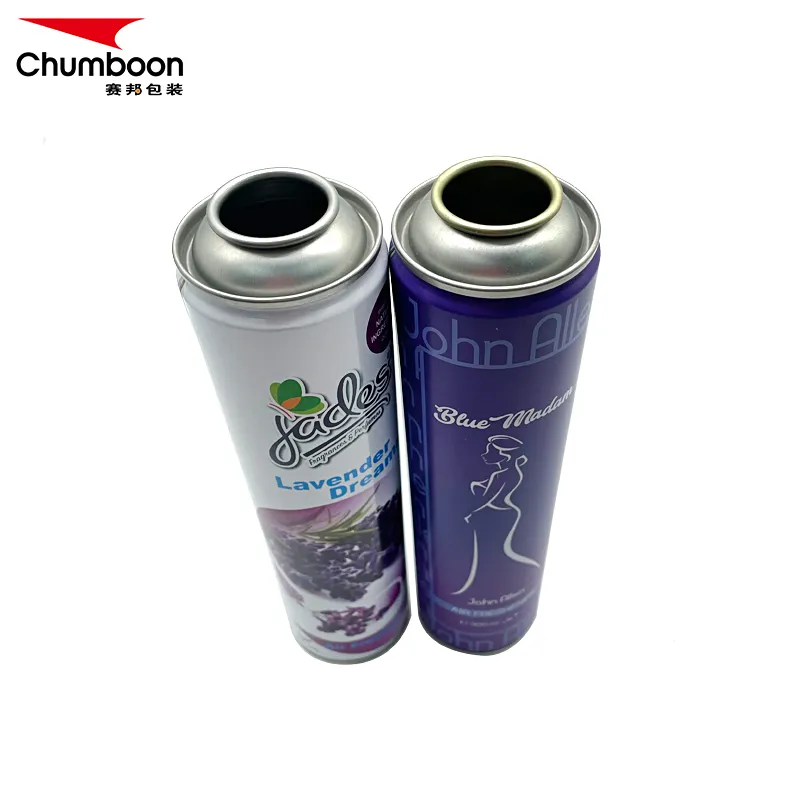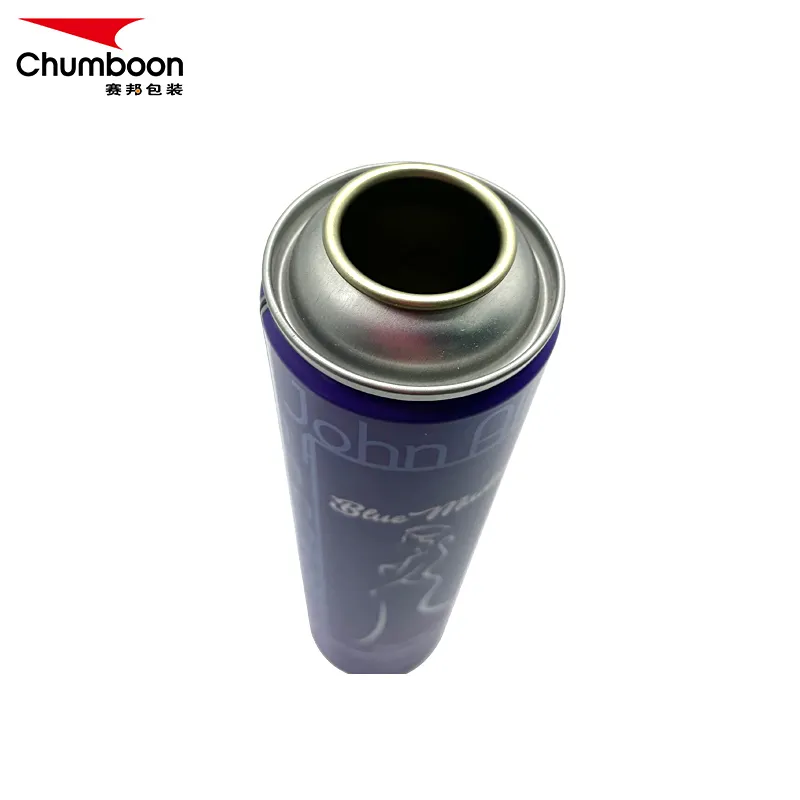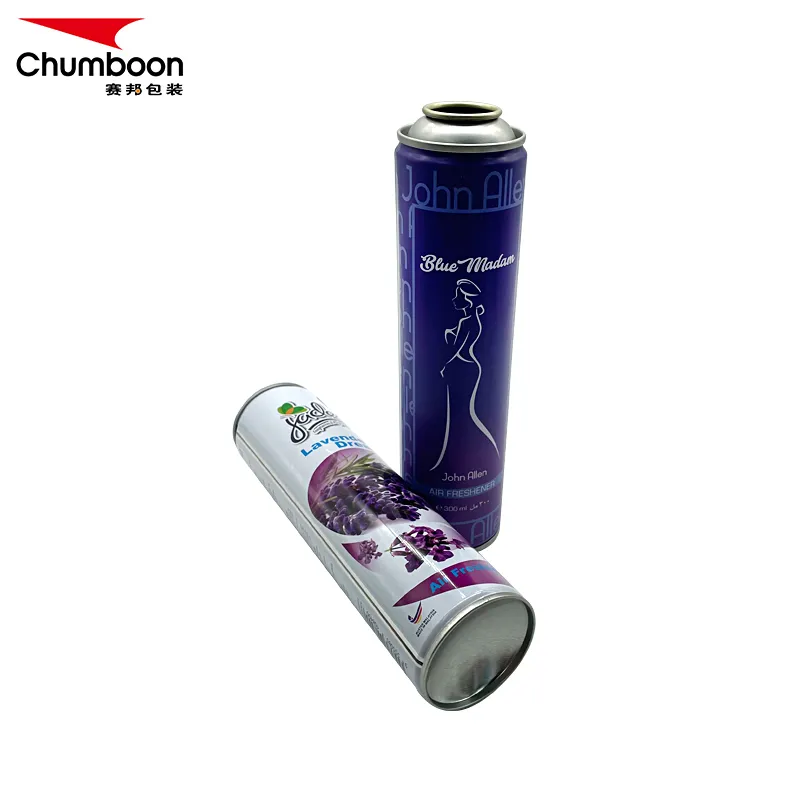Aerosol tin cans are widely used in personal care, household cleaning, industrial products and other fields, and their convenient spray function is deeply loved by consumers. However, not all substances are suitable for loading into aerosol tin cans. Some substances may cause safety hazards, health risks or environmental problems when loaded into tin aerosol cans due to their chemical or physical properties.
This article will discuss in detail the types of substances that are prohibited from loading in aerosol tin cans and their reasons, helping consumers and companies understand the relevant safety regulations to ensure safe use.

What is prohibited in aerosol tin cans?
Aerosol tin cans are prohibited from loading:
1. Flammable and explosive substances,
2. Corrosive chemicals,
3. Toxic substances,
4. Reactive substances,
5. Radioactive substances,
6. Food and drug ingredients,
7. Other special substances (strong magnetic substances, biological agents).
1. Inflammable and explosive substances:
High risk:
● Purely flammable gases: highly flammable gases such as acetylene and hydrogen, once loaded into tin aerosol cans, are very likely to explode when encountering fire or high temperature, causing great harm.
● High-pressure flammable liquids: such as gasoline and alcohol, due to their extremely low flash point, are prone to deflagration when encountering open flames or electric sparks under high-pressure environments.
Safety hazards:
● The high-pressure environment in aerosol tin cans: any combustible material will quickly burn and explode under a small fire source, increasing the risk of use and storage.
● Environmental factors: It is difficult to avoid temperature changes and physical shocks during the transportation and storage of aerosol tin cans. These factors may cause instability of internal substances and lead to dangerous events.
2. Corrosive chemicals:
Strong acids and alkalis:
● Corrosion risk: corrosive chemicals such as sulfuric acid, hydrofluoric acid, and sodium hydroxide can quickly corrode the metal tank or valve of tin aerosol cans, causing the tank to leak or explode.
● Human hazards: These chemicals have a strong corrosive effect on human skin and mucous membranes. If leaked or sprayed by mistake, they may cause serious burns and health damage.
Chemical reactions:
● Instability: Corrosive chemicals may react chemically with other ingredients in aerosol tin cans to produce toxic gases or high-temperature reactions, increasing the danger.
● Material restrictions: The manufacturing materials of aerosol tin cans generally cannot withstand highly corrosive chemicals for a long time, resulting in a shortened can life and reduced safety.

3. Toxic substances:
Highly toxic chemicals:
● Toxic gases: such as carbon monoxide and chlorine, which are extremely harmful to human health after inhalation and may cause poisoning, suffocation or even death.
● Toxic liquids: such as cyanide solutions and formaldehyde, which can cause serious health problems or even be fatal if contacted with the skin or inhaled with vapors.
Health risks:
● Risk of misuse: The convenience of tin aerosol cans makes them easy to be misused. Once they contain toxic substances, they will cause irreversible damage to users and the environment.
● Leakage hazard: After the toxic substances leak, it not only threatens the safety of users, but also may cause long-term pollution to the environment and harm the ecosystem.
4. Reactive substances:
High reactivity:
● Explosive chemicals: such as peroxides, nitrates, etc., are prone to violent chemical reactions when subjected to high pressure or heat stimulation, leading to explosions.
● Unstable chemicals: such as phosphine, borane, etc., are very easy to spontaneously combust or decompose in the air to produce a large amount of heat and gas, causing danger.
Operation difficulty:
● Storage difficulties: Reactive substances require strict storage conditions, and a slight carelessness may cause serious accidents, and tin aerosol cans are difficult to provide such safety guarantees.
● Transportation problems: These substances are more likely to have accidents during transportation, leading to leakage and explosion, increasing the risk and cost of transportation.

5. Radioactive substances:
Radioactive hazards:
● Health risks: Radioactive substances are extremely harmful to the human body and may cause serious health problems such as cancer and gene mutations. Once users come into contact with them, the consequences are disastrous.
● Environmental pollution: Once radioactive materials leak, they can easily pollute the environment, causing a long-term ecological crisis and high costs for cleaning and repair.
Legal restrictions:
● Strict control: Most countries and regions have strict legal regulations on the use and storage of radioactive materials, and prohibit storage in ordinary packaging such as aerosol tin cans.
● Professional handling: Radioactive materials require professional equipment and places for storage and handling, and ordinary aerosol tin cans cannot provide the necessary safety guarantees.
6. Food and pharmaceutical ingredients:
Food ingredients:
● Safety considerations: Although some aerosol tin cans can be used for food packaging, such as cream cans, tin aerosol cans are not suitable for perishable and perishable food ingredients. High-pressure environments may cause food ingredients to deteriorate and affect food safety.
● Regulatory regulations: Food-grade aerosol tin cans must meet strict hygiene and safety standards. Ordinary aerosol tin cans cannot meet these requirements and are therefore prohibited from being used to load certain food ingredients.
Drug ingredients:
● Precision dosage: Drugs need to strictly control dosage. Ordinary aerosol tin cans cannot ensure the accuracy of each spray dosage, which may lead to overdose or underdose.
● Cross contamination: Residues in tin aerosol cans may react with drug ingredients, resulting in reduced efficacy or side effects, endangering the health of users.
7. Other special substances:
Strong magnetic substances:
● Magnetic interference: Strong magnetic substances will interfere with the metal tank and valve of tin aerosol cans, which may cause spray failure or tank rupture, posing safety hazards.
● Transportation problems: Strong magnetic substances are easy to absorb surrounding metal objects during transportation, leading to transportation safety problems.
Biological agents:
● Active ingredients: Biological agents such as active enzymes and bacteria require specific temperature and pressure environments. Tin aerosol cans are difficult to provide these conditions, which may cause the active ingredients to fail.
● Cross infection: Once biological agents leak, they may cause cross infection and endanger the health and safety of users and the environment.

Conclusion
Aerosol tin cans provide great convenience in our daily life, but their internal high pressure and specific chemical properties determine that not all substances are suitable for loading into aerosol tin cans.
Flammable and explosive substances, corrosive chemicals, toxic substances, reactive substances, radioactive substances, certain food and drug ingredients, and other special substances are prohibited from being loaded into tin aerosol cans. These bans are not only to protect the safety of users, but also to prevent environmental pollution and ecological damage.

